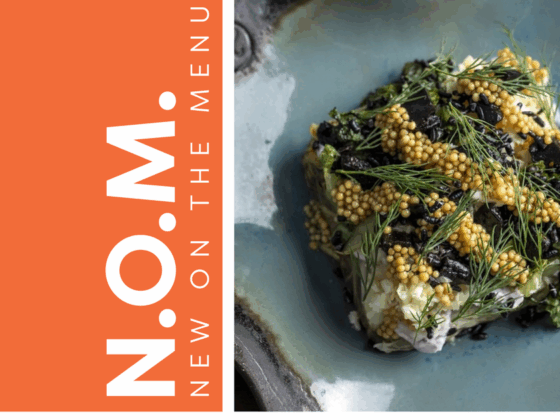
Global tourism has continued its upward trajectory in 2024, breaking demand records worldwide. International tourism arrivals are expected to exceed 1.5 billion by the end of the year, driven by a strong recovery across all regions. Global tourism revenues are anticipated to surpass $2 trillion, reflecting the sector’s robust performance, according to projections based on data from the United Nations World Tourism Organization (UNWTO).
In this context of exponential growth, Les Roches, one of the top five specialised schools in hospitality management education globally, has identified the key trends that will shape the industry in the coming year, with technology serving as the main catalyst.
Carlos Díez de la Lastra, CEO of Les Roches, anticipates a turning point in the sector: “2025 will be marked by a growing concern for long-term sustainability and service quality, while the industry adapts to meet the demands of an increasingly discerning and conscious traveller.
1.AI-driven sustainability becomes the new standard
Travellers are increasingly prioritising sustainability when choosing destinations and experiences, favouring those that respect the environment and promote social responsibility. In fact, 74% of global travellers are committed to reducing their environmental footprint, with 4 out of 10 considering ecological impact when planning their trips, according to the Energy Insight Report by Cepsa.
In this context, AI is emerging as a transformative tool for the hospitality sector, optimising resource consumption and minimising waste. Through advanced technologies, such as AI-powered systems that analyse and learn from vast amounts of data, tourism and hospitality operators can enhance energy efficiency and manage resources in real time without compromising the quality and comfort of guest experiences.
2. Getaways designed to improve quality of life
In addition to choosing destinations that promote environmental well-being, tourists are increasingly opting for those that holistically prioritise their personal well-being. According to Hilton’s annual trend report, more than half of travellers are willing to invest in vacations specifically designed to improve their quality of life and extend their health.
AI, combined with smart devices, is transforming the wellness tourism industry by offering personalised programs based on individual health data and preferences. Wellness resorts and destinations will leverage these technologies to design tailored, unique experiences aligned with travellers’ desires to escape urban stress and immerse themselves in environments that foster mental and physical balance.
3. Bleisure: The fusion of work and leisure
Within these wellness-oriented getaways, a growing trend has emerged: bleisure, blending business and leisure. More professionals, after completing their work commitments, are choosing to extend their stays to enjoy the destination in a more relaxed manner. This phenomenon enables individuals to balance productivity with downtime, creating a richer and more balanced travel experience.
The flexibility of remote work has facilitated this shift, offering travellers the freedom to lengthen their trips and explore new places while maintaining professional performance, which not only addresses the need for personal well-being but also encourages a more sustainable form of tourism. By allowing longer stays, bleisure helps reduce the pressure on traditional tourist hotspots, balances demand and promotes more distributed and mindful travel.
Bleisure aligns with the trend of slow and sustainable travel, emphasising a slower and more deliberate pace. Instead of frequent travel, tourists opt for more immersive, extended experiences, delving deeper into destinations. In addition to fostering a more thoughtful connection with local cultures, this type of tourism reduces the environmental footprint by limiting travel frequency and embracing a more respectful approach to destinations.
4. The creation of memories
The “experience economy” continues to gain momentum, marking a significant shift in global tourism trends. Instead of accumulating material possessions, consumers seek experiences that allow them to create lasting memories. This transformation is particularly evident among the younger generations, who prefer activities that go beyond merely enjoying a destination.
According to the ‘Changing Traveller Report 2025’ by SiteMinder, nearly 2 out of 3 travelers are now more inclined to travel for live events, reflecting the growing importance of experiences as an integral part of travel.
From interactive exhibits to temporary installations in hotels or urban spaces, the combination of tourism and art is becoming a major attraction for tourists. Hotels are positioning themselves as creative hubs, not only hosting art but also promoting cultural heritage preservation. By integrating art into their offerings, these spaces provide guests with immersive experiences while enhancing their stay.
5. Education and talent development: The key to an evolving industry
To address the challenges of an increasingly sophisticated tourism industry, de la Lastra emphasises the importance of a highly skilled workforce:
“We must deliver high-quality service that not only meets but exceeds travelers’ expectations. To achieve this, it is essential to have specialised, flexible professionals who excel in both traditional service competencies and advanced technological tools.”
In this regard, he adds: “At Les Roches, we remain attuned to industry changes and aligned with its needs through strategic partnerships with key players. We continuously adapt our programs to prepare future professionals capable of meeting the demands of an ever-evolving industry.”
The institution has recently launched several specialised programs, including a Bachelor of Science (BSc) in Sports Business Management, designed to prepare students for leadership roles in emerging areas such as sports tourism, which now accounts for approximately 10% of global tourism, according to the UNWTO.
Another new offering for 2024 is the launch of the Diploma of Advance Studies in Cruise Line Management, a pioneering program developed in collaboration with Silversea. This program responds to the growing demand for professionals specialised in the luxury cruise sector.







